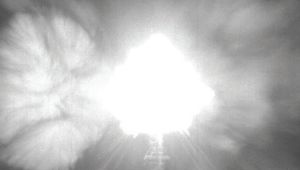The New York Times
Friday, April 16, 2004
From One Commission to Another: Shut Up
By Juliette Kayyem and Wayne Downing
There is a growing chorus of criticism against members of the 9/11 commission that they are behaving like partisan players in what was supposed to be an objective review of the terrorist attacks. After all, you can't turn on the television or flip through a newspaper (including to this page) without encountering panel members pontificating on the hearings. While we are confident that the commission will ultimately be able to produce a constructive and unbiased report, as members of another panel on terrorism we also know the value of silence.
In August 1999, we were appointed to the independent National Commission on Terrorism, which Congress established after the embassy bombings in Africa to assess the growing threat against America. One of us is a conservative Army general who led special operations during Desert Storm. The other is a Democratic lawyer who worked at the Justice Department under Attorney General Janet Reno.
From that moment until the commission released its report in June 2000, we did not speak to the news media. Following a voluntary gag order, we and the eight other commissioners revealed not a single inkling of our assessments of witnesses, documents or the Clinton administration's policies. It seemed to us that we were only relevant, and would only be effective, if we spoke in a unified voice once our work was complete.
The time has come for the 9/11 commission to impose the same voluntary gag order on itself. The heightened profile and interest in the hearings has inevitably made this panel a focal point for those engaged in election debates. There is little the commissioners can or should do to stop those interpretations. Their job is to ask hard questions -- they were chosen for their unique and substantive backgrounds and because they are no longer aligned with any government agency.
While open testimony is important for the American public, open pontificating by the commissioners is not. That only encourages outsiders to perceive the commissioners as stand-ins for factions in current political battles. It also tempts commissioners into making assessments and conclusions prematurely.
A panel like this acts as a kind of jury, taking information and determining what ultimately should result. There is a sound reason why jury deliberations are not public and why individual jurors are prohibited from discussing their deliberations while they are occurring. The weight of the commission's recommendations is made more credible and dignified if the commissioners do not have known opinions outside the ultimate verdict.
We learned first-hand that initial opinions can change over time after hearing additional testimony and undergoing internal deliberations. One of us, for example, went "left" in ultimately deciding that more rigorous standards were needed for detaining individuals based on undisclosed information. The other went "right" in supporting more aggressive recruitment by the C.I.A. of human-rights violators to act as informants. This is a healthy process. It is hard to see how it is facilitated by taking a premature position on national television. That only makes it more difficult for a commissioner to back away from that position later on, and unnecessarily so.
This is not to say that the 9/11 commissioners do not have an interest in making their opinions known. But that interest should be limited to issues involving process and the effective workings of the panel. Such procedural concerns included the commission's request for Condoleezza Rice, the national security adviser, to testify, and its unanimous recommendation that the Aug. 6 Presidential Daily Brief be released to the public.
In the end, public analysis, as a matter of sound political strategy (political in the effectiveness sense, not the partisan sense), is better left to others in the White House, the Kerry campaign, Congress, the 9/11 families and the news media. Once the report is released, there will be plenty of time for the commissioners to chat.
There should, of course, be no sanction for violating a gag-order agreement. But the reality is that an individual commissioner's interpretation of the hearings, evidence and report itself is irrelevant. If, as we hope, the 9/11 report is going to say something constructive and beneficial about America's security, then a voluntary gag order will help ensure that it will have the greatest possible historical importance and influence.
Juliette Kayyem teaches national security at the Kennedy School of Government at Harvard. Wayne Downing was the national security adviser for counterterrorism in the administration of George H. W. Bush..
Kayyem, Juliette. “From One Commission to Another: Shut Up.” The New York Times, April 16, 2004




